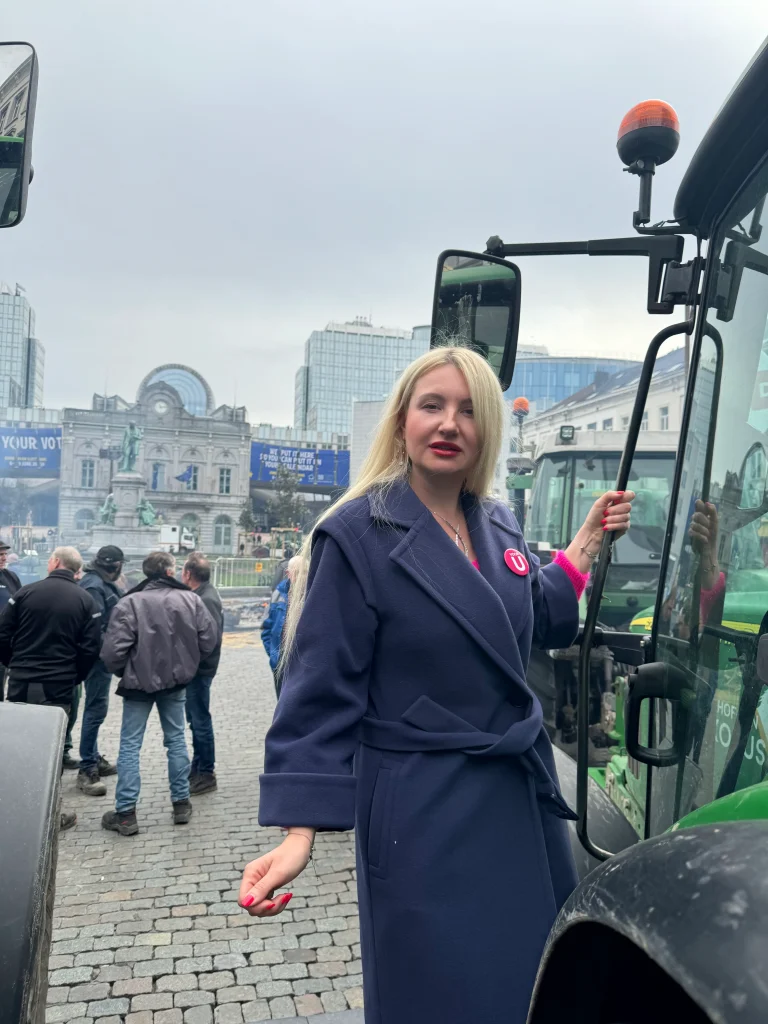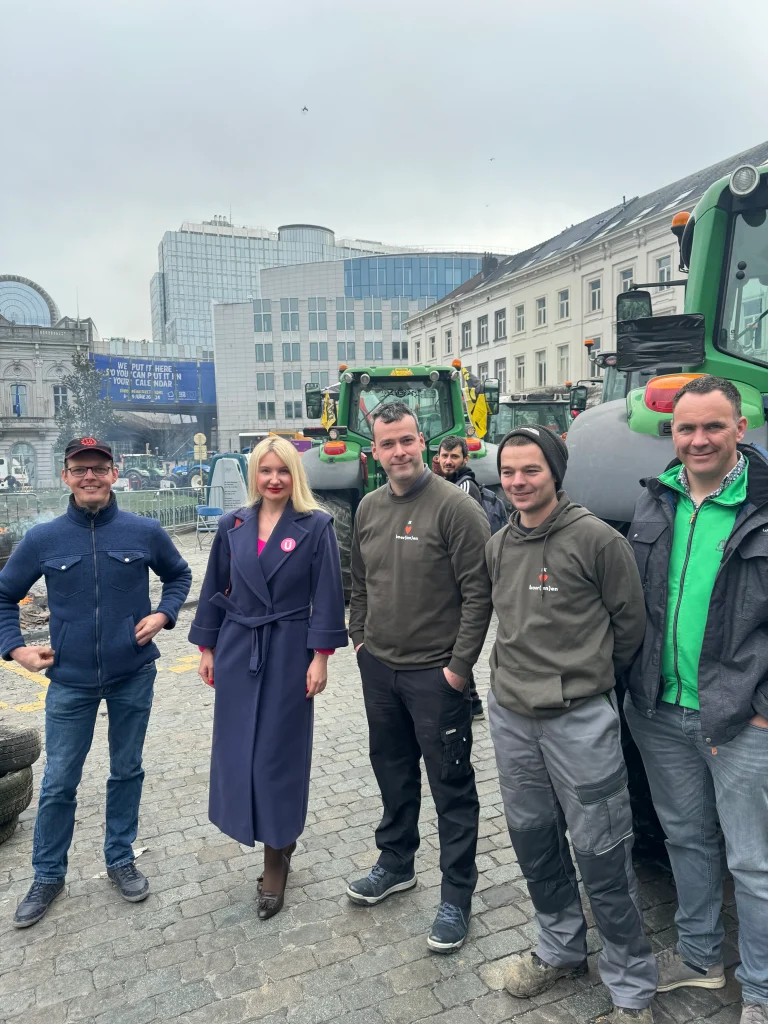In 2024, Belgium witnessed significant farmer protests characterized by go-slow protests and road blockades across major roads and highways, including critical areas in and around Brussels, causing widespread disruption (The Brussels Times). The protests were part of a broader wave of farmer demonstrations across Europe, fueled by concerns over EU environmental standards, the impact of regulations on farming practices, and the economic viability of the agricultural sector (Wikipedia).



The primary causes of these protests were strict EU environmental standards and the perceived over-regulation of farming practices. Belgian farmers, along with their counterparts in several other European countries, denounced these regulations for their impact on declining incomes and the added operational difficulties they imposed on farming activities. These standards, part of a broader EU initiative to reduce environmental impact, were seen by the protesting farmers as overly burdensome and disconnected from the realities of agricultural production.
The farmers’ demands were multifaceted but centered around a call for the relaxation of specific EU regulations, a reevaluation of the Nature Restoration Act, changes to the subsidies for reforestation, and more flexibility in farming operations, including the imposition of sowing dates. They sought to bring attention to the difficulties the current regulatory framework posed to their livelihoods and the sustainability of farming in Europe (The Brussels Times).
Regarding support, the farmers sought understanding and solidarity from the general public and policymakers alike. Through their disruptive but peaceful protests, they aimed to highlight the importance of a viable agricultural sector not only for farmers but for society as a whole, emphasizing that agriculture’s decline poses a threat to food security and economic stability (The Brussels Times). They appealed for a collaborative effort to prevent agriculture from becoming overly reliant on imports and emphasized the need for sustainable policies for all stakeholders (The Brussels Times).
As the protests unfolded, they managed to capture the attention of European policymakers. For example, in response to similar protests in Poland, the European Union agreed to implement a cap on tariff-free Ukrainian grain imports, showing some degree of responsiveness to the concerns raised by farmers across the continent (Wikipedia).
These protests represent a critical juncture for European agriculture, highlighting the tension between environmental sustainability goals and the economic realities of farming. The farmers’ actions in Belgium and beyond underscore the need for a balanced approach that ensures the viability of agriculture while meeting environmental objectives. The situation calls for ongoing dialogue and cooperation between farmers, policymakers, and other stakeholders to forge a path forward that respects the needs and contributions of the agricultural sector to society.
In summary:
The Brussels farmer protesters have articulated several demands in response to the challenges they face, highlighting the tension between environmental regulations and agricultural livelihoods. The demands, drawn from the demonstrations and articulated by the protesters and their representatives, include:
- EU Concessions and Fair Revenue. Protesters demand concessions from the EU, particularly regarding what they view as burdensome environmental regulations and unfair competition from cheap imports that undermine EU farmers’ ability to compete. The core issue for farmers is the struggle to achieve fair revenue from their produce, especially when prices fall below the cost of production due to free trade agreements and deregulation (Voice of America).
- Action on Cheap Supermarket Products and Low-Cost Imports. Demonstrators are calling for EU action against cheap supermarket products and low-cost imports, which they argue put undue pressure on the agricultural sector by creating unfair competition. Farmers emphasize that the EU’s environmental rules exacerbate this pressure, making it difficult for EU agriculture to compete with countries with more lax environmental standards (DW).
- Adjustments to Environmental Rules. Farmers across Europe, including those in Brussels, have been protesting against what they perceive as excessively restrictive environmental rules. The protestors argue that these rules contribute to low incomes and competitive disadvantages compared to non-EU countries with more lenient ecological regulations (DW).
- Reevaluation of the EU’s Green Deal Environmental Policies. In light of the protests, the EU’s Green Deal environmental policies have weakened, mainly removing the goal of cutting farming emissions from its 2040 climate roadmap. Farmers are advocating for policies that recognize the economic realities of agriculture and provide compensation for environmental services rendered by the agricultural sector (DW).
- Opposition to the Flemish Government’s Nitrogen Emission Cuts. Specifically, in Brussels and the broader Flemish region, farmers have protested against the Flemish government’s plans to limit nitrogen emissions from agriculture. They argue that these planned cuts unfairly target the agricultural sector over industry and threaten the viability of many farms (POLITICO).
These demands reflect the broader challenges faced by the European agricultural sector, balancing environmental sustainability with economic viability. The protests in Brussels and across Europe highlight the need for dialogue and policy adjustments that address both environmental concerns and the livelihoods of farmers.
References:
- Crisis24. Belgium: Farmers staging go-slow protests and road blockades nationwide, including in Brussels, Jan. 29
- Wikipedia. 2024 European farmers’ protests
- The Brussels Times. Farmer protest continues: Tractors will block Brussels Ring Road until tonight
- The Brussels Times. Farmer protests: Tractors blocking key roads in and around Brussels
- The Brussels Times. Farmer protest continues: Major traffic disruptions in Brussels and across Belgium
- Voice of America. Protesting Farmers Swarm Brussels With Tractors, Demanding EU Concessions
- Deutsche Welle. Farmers jam Brussels’ EU quarter as ministers meet
- POLITICO. Aggro-culture: Farmers’ protest brings Brussels’ EU Quarter to a standstill





